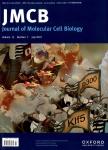Harnessing memory adaptive regulatory T cells to control autoimmunity in type 1 diabetes
利用内存自适应调节性T细胞,以控制自身免疫性1型糖尿病作者机构:Infectious and Inflammatory Disease CenterSanford-Burnham Medical Research Institute10901 North Torrey Pines RoadLa JollaCA 92037USA
出 版 物:《分子细胞生物学报:英文版》 (Journal of Molecular Cell Biology)
年 卷 期:2012年第4卷第1期
页 面:38-47页
核心收录:
学科分类:0710[理学-生物学] 0831[工学-生物医学工程(可授工学、理学、医学学位)] 1002[医学-临床医学] 1001[医学-基础医学(可授医学、理学学位)] 100214[医学-肿瘤学] 10[医学]
基 金:supported by grants from the National Institutes of Health (NIH,AI081238) Juvenile Diabetes Research Foundation (JDRF,31-2008-353)
主 题:type 1 diabetes adaptive regulatory T cells autoimmunity immunotherapy
摘 要:Type 1 diabetes(T1D)results from autoimmune destruction of insulin-producing b-cells in the pancreatic *** is an immediate need to restore both b-cell function and immune tolerance to control disease progression and ultimately cure ***,there is no effective treatment strategy to restore glucose regulation in patients with ***3-expressing CD4^(+) regulatory T cells(Tregs)are potential candidates to control autoimmunity because they play a central role in maintaining ***,deficiencies in either naturally occurring Tregs(nTregs)themselves and/or their ability to control pathogenic effector T cells have been associated with ***,we hypothesize that nTregs can be replaced by FoxP3^(+) adaptive Tregs(aTregs),which are uniquely equipped to combat autoreactivity in *** nTregs,aTregs are stable and provide long-lived *** this review,we summarize the current understanding of aTregs and their potential for use as an immunological intervention to treat T1D.



